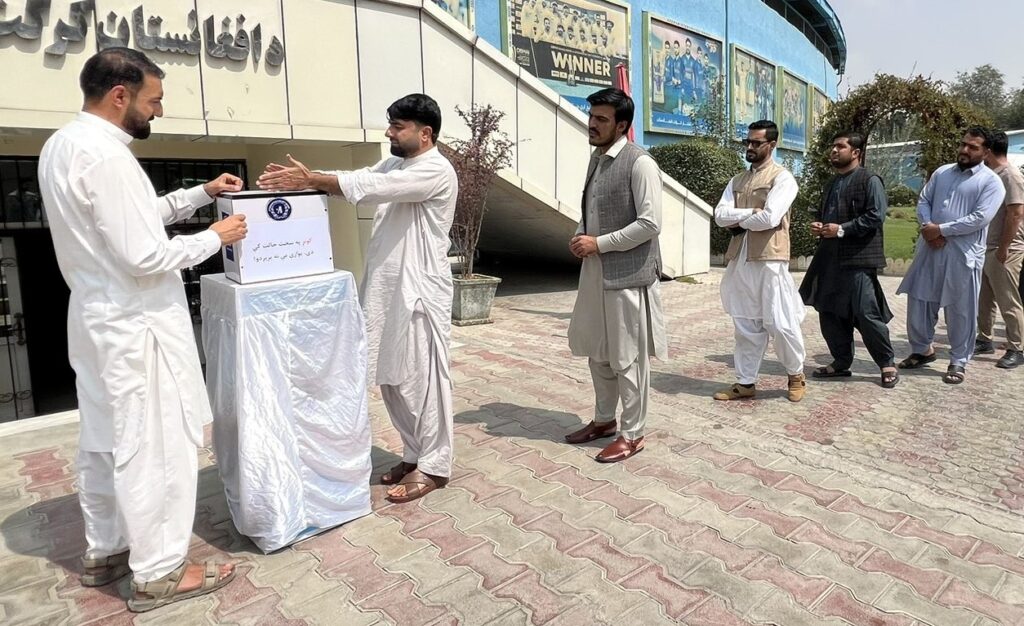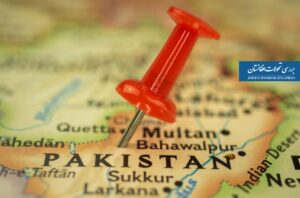Review of Afghanistan developments
The catastrophic earthquake in Kunar, which resulted in the loss of hundreds of lives and the destruction of thousands of residences, serves as a measure of the resilience of Social cohesion, collective trust, and a spirit of compassion within a community that has suffered from prolonged conflict, instability, and poverty. Historical evidence indicates that in these situations, the rapidity and effectiveness of a community’s recovery rely not solely on foreign assistance or governmental capabilities, but primarily on informal social connections, a sense of mutual trust, and active community involvement.
The significance of Social cohesion and effective solutions during periods of crisis
Social cohesion, at its most basic level, refers to the feeling of belonging that individuals have towards one another and to the larger society. In a cohesive society, members perceive their destinies as interconnected. In such environments, trust among individuals and their relationships is heightened, while empathy, social engagement, and collaboration occur more organically. Furthermore, individuals are more inclined to unite during crises instead of distancing themselves, as they recognize themselves as integral parts of a unified whole, rather than viewing others as distinct from themselves.
Crises such as earthquakes or floods represent instances where social cohesion is challenged in the most extreme manner. Indeed, a natural disaster serves as a social experiment: individuals may either become isolated, focusing solely on their own survival, or a spirit of community may emerge, allowing society to navigate the crisis collaboratively. Nations characterized by a strong sense of social cohesion typically recover from crises more swiftly, as solidarity and social discipline can help avert the escalation of chaos.
In the occurrence of a crisis, actionable steps that community members might take could encompass:
– Through collaborative efforts within the community, even if substantial government or international assistance is delayed, each family or individual can contribute a portion of their food, water, or shelter to others; a straightforward action that not only addresses the immediate requirements of others but also communicates a message of trust and unity.
In these circumstances, individuals who have experienced minimal damage can establish small volunteer teams for rescue operations, debris removal, or psychological assistance; these groups, due to their knowledge of the local area and its residents, typically respond more swiftly and efficiently than official teams. Earthquakes not only devastate homes but also disrupt the morale of individuals, and during this time, those who have endured can support fellow survivors in coping with the initial trauma by offering a listening ear, encouragement, and conversation.
The utilization of mobile phones and social media facilitates the swift and precise dissemination of information regarding urgent needs in the area, enabling aid to be directed in a more targeted manner.
Social workers and civil society organizations, leveraging their expertise in crisis psychology, relief management, and public assistance coordination, are capable of managing the distribution of aid, recognizing immediate needs, and offering psychological support. By organizing local volunteers and establishing communication networks between the community and international organizations, they mitigate resource wastage and foster trust. Furthermore, their proactive involvement enhances public confidence, ensuring that assistance is delivered to those who genuinely require it, thereby reinforcing solidarity and social responsibility within the community.
Analysis of public aid during the Afghanistan earthquake of 2025
In light of the recent earthquake that struck eastern Afghanistan, resulting in hundreds of casualties and leaving thousands without shelter, there were concerns that fragile social frameworks and a long-standing mistrust among the populace would hinder the influx of aid. Contrary to these expectations, however, the situation revealed a remarkable display of spontaneous solidarity. The significance of this grassroots cooperation is noteworthy on multiple fronts:
1- Restoring social trust in a society that has been hurt
Years of corruption, conflict, and governmental inefficiency have significantly eroded collective trust. However, when individuals took the initiative to offer support—be it through businesses and corporations supplying financial aid and essential goods, or through local efforts to distribute food and clothing—a process of restoring trust among one another and in local capabilities occurred. This experience demonstrated that society can operate effectively by depending on its own informal and traditional networks, even in the absence of dysfunctional formal structures.
2- Strengthening social capital and a spirit of empathy
Public campaigns aimed at encouraging blood donations or gathering monetary and material contributions not only addressed an urgent requirement; they also conveyed a significant message of compassion and shared accountability. Such donations enhanced the community’s social capital and provided survivors with a sense of solidarity, assuring them that they were not isolated and had not been forsaken.
3- The proactive role of informal civil society
In spite of political limitations and pressures, individuals managed to establish a form of informal civil society—comprising family, ethnic, religious, and local charitable networks. This indicates that even within a repressive environment, the capacity for community self-organization and support remains present.
4- Hope for a future based on social cohesion
One of the most significant conclusions drawn from this incident is the following: Afghan society, despite its historical divisions and traumas, continues to exhibit social cohesion. This experience serves as a reference point for the future; it illustrates that social cohesion is not a relic of the past, but rather, through the cultivation of trust and the provision of opportunities for participation, it can emerge as a powerful force for the country reconstruction.
Transforming crisis into opportunity: The enduring impacts of public engagement and support
Natural disasters and earthquakes, while they result in significant loss of life and property in the immediate aftermath, can offer a distinctive chance in the long run to enhance social cohesion and foster a culture of collective collaboration. The active involvement of the community in delivering aid not only hastens the relief efforts and mitigates immediate harm, but also yields beneficial social, economic, and psychological effects at the community level.

During the ongoing crisis in Afghanistan, grassroots assistance has been crucial. It frequently provides aid more swiftly and reaches those in need much earlier than official channels. Furthermore, the mutual trust established among neighbors and acquaintances enhances the effectiveness and directness of support, as individuals tend to trust those in their immediate circle more than distant organizations. Additionally, these initiatives extend beyond the immediate crisis response, fostering solidarity and enduring social connections that fortify community relations and resilience for the future.
Engaging in volunteer work, including offering support to those impacted, aiding in the rebuilding of homes, educating at-risk populations, and supporting children and the elderly, enhances social connections. Over time, these efforts contribute to the establishment of shared values within the community. When individuals within a community recognize that volunteering addresses not only urgent needs but also fosters a sense of fulfillment, mutual trust, and acknowledgment of each person’s significance in the community, it leads to the development of a sustainable and resilient social culture.
On the other hand, formal and local institutions have the potential to significantly enhance public trust by ensuring transparency in the allocation of resources. When individuals observe that assistance is being distributed equitably and directed towards those who genuinely require it, a feeling of solidarity and active engagement within the community is bolstered. Over time, transparency diminishes misconceptions, the spread of rumors, and skepticism, thereby augmenting social capital. A community that has confidence in its institutions is more equipped to handle future challenges and engage in developmental initiatives.
Conversely, public assistance not only addresses immediate needs but also yields beneficial psychological and social outcomes, such as effectively alleviating stress and collective anxiety. When healthy individuals extend their help to others, it fosters a heightened sense of empowerment and control over circumstances, leading to a reduction in overall anxiety. The act of helping engenders a feeling of involvement and belonging to a larger community. Individuals perceive themselves as integral members of an extensive support network, which enhances social resilience and fortifies social identity and a sense of belonging. Engagement in volunteer activities cultivates local leaders capable of making decisions and guiding the community during critical times. This capability, over time, enhances the ability to navigate future crises and, ultimately, by providing assistance to those in need, it diminishes social and ethnic divides, thereby reinforcing human connections and collective solidarity.
Related Articles
Afghanistan Earthquake: Urgent Aid Required from Neighbors
Dasht-e-Barchi: From traffic jam to Urban Transformation
Conclusion
The recent earthquake in eastern Afghanistan constituted a significant disaster; however, it simultaneously offered a chance to reevaluate the social foundations of the country. The truth is that without social cohesion, no society can effectively navigate a crisis. Social cohesion serves as the unseen capital that encourages individuals to collaborate rather than compete for survival.
Currently, Afghanistan requires a reinforcement of its social capital more than ever. The provision of aid is crucial not only for preserving lives but also for fostering a future characterized by increased trust and solidarity. This humanitarian assistance serves not merely as a temporary reaction to the crisis, but as a collective reminder that Afghan society is still capable of unity, which may prove to be more significant in the long term than the material support itself. In the end, this presents an opportunity for policymakers to enhance this grassroots capacity structurally, initiating the process of rebuilding community ties, social relationships, and alleviating tensions.

















